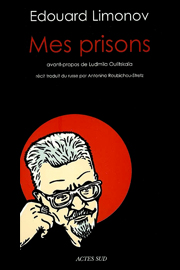Emmanuel Carrère
Over the past quarter of a century, literary critics have compared French author Emmanuel Carrère to writers from Stephen King to Truman Capote, but these days his books seem to defy all classification. The same might be said of his work as a filmmaker, screenwriter, journalist and biographer—in short, Carrère takes his audiences by surprise with every new twist and turn of his multifaceted career.
«What I write is close to what Truman Capote called nonfiction novels,» he explains. «They’re based on aspects of reality that I narrate in the first person, and my autobiographical presence varies according to each book. I tend to use all the tricks of the trade in fiction writing but the stories are also deeply personal…and true.»
Awarded the prestigious Renaudot Prize in 2011 for his latest bestselling work, Limonov (slated for release in English in September 2013), Carrère describes the book as a mash-up of memoir, reportage and a slightly romanticized version of the life of Eduard Limonov, a Russian writer, adventurer and politician.
Grave to mischievous
«I knew Limonov in the 1980s in Paris when he was a trendy author and a bit rock-and-roll,» Carrère recounts. «I really liked his autobiographical books about all his scandalous adventures. Plus, he was different than all the serious Russian dissidents we’d seen. To me, he seemed like a kind of Jack London or Henry Miller, though not quite as important.»
Sitting in the living room of his sprawling, homey apartment on a quiet residential street in Paris’s 10th arrondissement, sipping tea, the 54-year-old Carrère seems younger than his years and radiates a palpable intensity. Lean and energetic, he has a rich, vibrant voice, an engaging manner and a ready smile. His manner alternates between grave and mischievous, much like his alter-ego narrator.
«When I went to interview Limonov in Moscow five years ago, I spent two weeks with him,» Carrère continues. «To be honest, I came out of that without knowing what I really thought of him—whether I even liked him or not. For example, Limonov went to fight in Eastern Europe with the Serbian troops and created a bizarre neo-Fascist party. I was totally bewildered—it was like finding out that your old high school friend had become a figure of organized crime.»
«Ultimately, I realized that his story presented the possibility of writing a picaresque novel that coincides with a story that traces the fall of communism.»
<…>
«France Today», july 4, 2012
 copyleft 2012–2020
copyleft 2012–2020